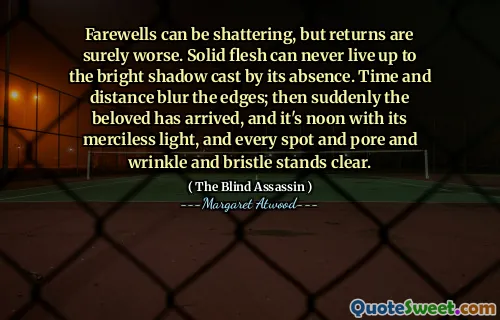When you're young, you think everything you do is disposable. You move from now to now, crumpling time up in your hands, tossing it away. You're your own speeding car. You think you can get rid of things, and people too-leave them behind. You don't yet know about the habit they have, of coming back.Time in dreams is frozen. You can never get away from where you've been.
In "The Blind Assassin," Margaret Atwood explores the fleeting nature of youth and the illusion of permanence that comes with it. Young individuals often feel as if their actions and relationships are easily disposable, allowing them to navigate life rapidly without fully understanding the consequences. They believe they can simply leave things behind, unaware that those experiences and connections have a way of returning, impacting their lives again.
Additionally, Atwood highlights the concept of time in dreams, where moments remain static and unchangeable. This reflects the characters' struggles with their pasts, emphasizing that escaping one's history is impossible. The idea that time is inconsequential in youth is contrasted with the reality that memories and experiences inevitably resurface, forming a complex relationship with one's identity and past actions.

